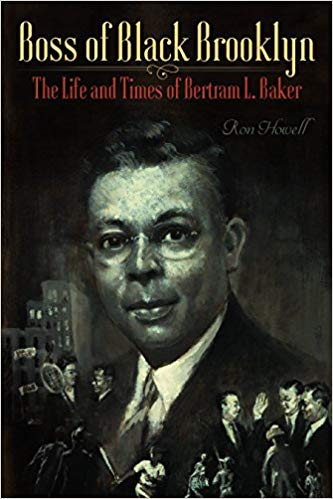IllmaticDelta
Veteran
The gay children of the black elite certainly lived interesting lives.
This Thurlow Tibbs guy looks like he was.

The gay children of the black elite certainly lived interesting lives.
This Thurlow Tibbs guy looks like he was.

And make more money den u n still smashin boule thots since junior high n never had to simp. Own condo garage underneath my buildingYou're almost 40 years old and you write like this?
"mothers know best"




 sucks to be u in reality
sucks to be u in reality 
Wow, I missed this....
Everybody says it likes it's spelled FARVE,
And make more money den u n still smashin boule thots since junior high n never had to simp. Own condo garage underneath my building
I rather be up 6 figures no debt den be a broke grammar spell check police on a hiphop formsucks to be u in reality



This actress played the mom on one of Tyler Perry's sitcoms. The spelling is different but she's from your region and I'd have to believe that it's the same family/ surname.
This thread is about black families of accomplishment, legacy, power, education, and connections and the only thing you can allow out of your mouth is that you 'smash bishes and get money' as if those are things someone like me would value?
But u chose to try be funny n flopped yall internet nikkas dont get cool points in reality. Youre grown man hopefully a black grown man hope youre building your own legacy its too late to be a boule c00n in this new decade but god bless u stay safe wear your mask
*Read the room*
Almost 40 you say......

I'm just messing with you breh. Do you.
FYI, I've seen your post about you playing ball in your younger days. Just so you can peg me as being broke even more, I'll let you know that I attended Fenwick.
Ya'll brehs are so black
But guess what....
Your black kids
Will go to their black schools
In their black neighborhoods
And will be taught by their black teachers
From black history books
Black history
That was forged by these families.
But they not black......


I met her great great granddaughter A’Lelia at the Harlem Book Fair when she was promoting her book a few years back when I was living in New York. She struck me as being extremely humble but very intelligent. If I recall, she graduated at the top of her class at Radcliffe (now subsumed under Harvard).


There's been a running joke about the pronunciation of his last name, ever since thisHow do you pronounce it? I pronounced it that way, too.
Creole names are interesting.
A surname of my family is LeCesne. People pronounce it Luh-cess-nee. We pronounce lay-scene. The 's' is silent.
Actually, it's through the LeCesnes that I connect to Bryant Gumbel. His mother was Rhea LeCesne Gumbel.
There's been a running joke about the pronunciation of his last name, ever since this
I think they've Anglicized it over the decades, but I'm guessing the original pronunciation was FAH-vrr.
It became FARV at some point.
Did not know that Gumble had a Creole background. Pronunciation and spelling of Creole and French names vary, even between relatives.
There's an Offensive Coordinator for the Chiefs named Eric Bienemy. He's from New Orleans.
@intruder spoke of alternate spellings and pronunciations of that name.


FACTSI see we got some West Indian hands on deck. I told you in Chicago, we don't have that big divide between WI and AA elites. They pretty much run in the same circles and work together pretty well. Pan-Africanism at work!
Another fact. You are 2 for 2 here.I think I discussed before that hearing these things about WIs always surprised me because those that I grew up in proximity with in Chicago were light, bourgeois, and integrated into our circles. There may have been distinctions but they were soft.



was a newspaper editor and real estate businessman based in Boston, Massachusetts, and an activist for African-American civil rights. He was an early opponent of the accommodationist race policies of Booker T. Washington, and in 1901 founded the Boston Guardian, an independent African-American newspaper he used to express that opposition. Active in protest movements for civil rights throughout the 1900s and 1910s, he also revealed some of the differences within the African-American community. He contributed to the formation of the National Association for the Advancement of Colored People (NAACP).
Trotter was born into a well-to-do family and raised in Hyde Park, Massachusetts. He earned his graduate and post-graduate degrees at Harvard University, and was the first man of color to earn a Phi Beta Kappa key there. Seeing an increase in segregation in northern facilities, he began to engage in a life of activism, to which he devoted his assets. He joined with W. E. B. Du Bois in founding the Niagara Movement in 1905, a forerunner of the NAACP. Trotter's style was often divisive, and he ended up leaving that organization and founding the National Equal Rights League. His protest activities were sometimes seen to be at cross purposes to those of the NAACP.
In 1914, he had a highly publicized meeting with President Woodrow Wilson, in which he protested Wilson's introduction of segregation into the federal workplace. In Boston, Trotter succeeded in shutting down productions of The Clansman in 1910, but he was unsuccessful in 1915 with screenings of the movie The Birth of a Nation, which also portrayed the Ku Klux Klan in favorable terms. He was not able to influence the peace talks at the end of World War I, and was in later years a marginalized voice of protest. In 1921, in an alliance with Roman Catholics, he got a revival screening of The Birth of a Nation banned. He died on his 62nd birthday after a possibly suicidal fall from his Boston home.


was an American teacher, soldier, employee of the United States Post Office Department, a music historian, and Recorder of Deeds in Washington, D.C. Born into slavery in Mississippi, he, his two sisters and their mother Letitia were freed by their master, the child's father, and helped to move to Cincinnati, Ohio. He grew up in freedom, attending school and becoming a teacher.
During the American Civil War, Trotter enlisted in the 55th Massachusetts Volunteer Infantry, the state's second black infantry regiment, and was quickly promoted; he was the second man of color to be promoted to the rank of lieutenant in the U.S. Army. After the war, he married and moved with his wife to Boston. He was the first man of color hired by the Post Office Department (now the United States Postal Service) there and worked with them for many years. He wrote a history of music in the United States which is still in print. In 1886, he was appointed by the Democratic administration of Grover Cleveland as the Recorder of Deeds in Washington, D.C., the highest federal position available at the time for African Americans.
His son William Monroe Trotter became a rights activist and was founder and editor of the Boston Guardian, a progressive African American newspaper.

was an American civil rights activist and editor. Pindell Trotter was an integral fixture of Boston's African-American upper class at the turn of the 20th century. Pindell Trotter is most known for her role as the associate editor of George W. Forbes's and her husband William Monroe Trotter's newspaper, the Boston Guardian.[1]
Born Geraldine Pindell on October 3, 1873 to Charles Edward Pindell and Mary Francis Pindell. Pindell Trotter received her initial education in Everett, Massachusetts at the Everett Grammar School, then matriculated to a local business college. For ten years after completing her studies, Pindell Trotter worked as an accountant for the Eli Cooley Company. During this time, Pindell Trotter met W. E. B DuBois and the two kept in touch for years after he finished his studies at Harvard. Dubois later recalled his desire to have courted her and lamented his inability to do so.[1] Pindell Trotter, having known William Monroe Trotter since childhood, married him following his graduation from Harvard. Both individual's families were supportive, and aside from the fact that the Pindell's were Northern in origin and the Trotter's Southern, there was no contention between each.
The young pair moved into the middle class Dorchester area of Boston following marriage, at 97 Sawyer Avenue.[2] Monroe Trotter shortly entered into the real estate business, working with mostly white clients. As Monroe Trotter's real estate venture increasingly garnered success, Pindell Trotter stopped working. Entertaining elite guests occupied a significant amount of Pindell Trotter's time thereafter. Notable individuals Pindell Trotter entertained included DuBois and his family, but also included the eminent African American lawyer Archibald Grimke and his family.[1]
The Trotters remained childless throughout their marriage, and Pindell Trotter told friends she had no desire to have children, as their busy lives would not allow for proper care
Philanthropy
Pindell Trotter aided the City of Boston and surrounding areas often over the course of her life. In Roxbury, Pindell Trotter imparted her skills upon a local community aid center, St. Monica's Home. A bastion for African American women and children in need of care, St. Monica's in Dorchester was episcopalian, mirroring Pindell Trotter's religion. Pindell Trotter, variably, was also involved in the Public School Association, the Boston Literary and Historical Society, Women's Anti Lynching League, and the Equal Rights Association.[2]
Another cause Pindell Trotter dedicated herself to was the welfare of African American soldiers in World War I and the Soldiers Comfort Units, notably aiding the 519th engineers at Fort Devens. Pindell Trotter, with her husband William, also demonstrated against a second run showing of The Birth of a Nation, a depiction of the origin of the Ku Klux Klan in the South.[1]






Virginia Isaacs, daughter of Tucker and Ann-Elizabeth Fossett Isaacs, was raised on a farm in Ross County, Ohio. After the Civil War she and her sister Maria Elizabeth Isaacs married two veterans of the Civil War, Lts. James Monroe Trotter and William H. Dupree. Both couples settled in Boston, where Trotter and Dupree were well-known figures after distinguished service as officers in the 55th Massachusetts Infantry regiment. Virginia Trotter and her sister were described by a contemporary as women of “charming sociability and cultured manners.”
The Trotters lived in Hyde Park, a largely white suburb of Boston, and accumulated property, particularly after James Monroe Trotter’s appointment to the lucrative position of Recorder of Deeds for the District of Columbia. They had three children, William Monroe, Maude, and Bessie. After her husband’s early death, Virginia Trotter managed the family investments and supported her son Monroe, allowing him to establish the Boston Guardian, and become a leading voice in the early civil rights movement.